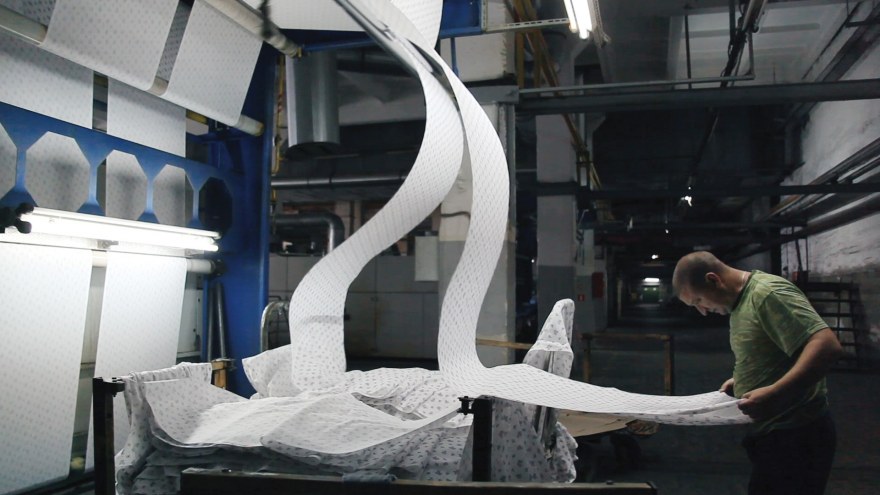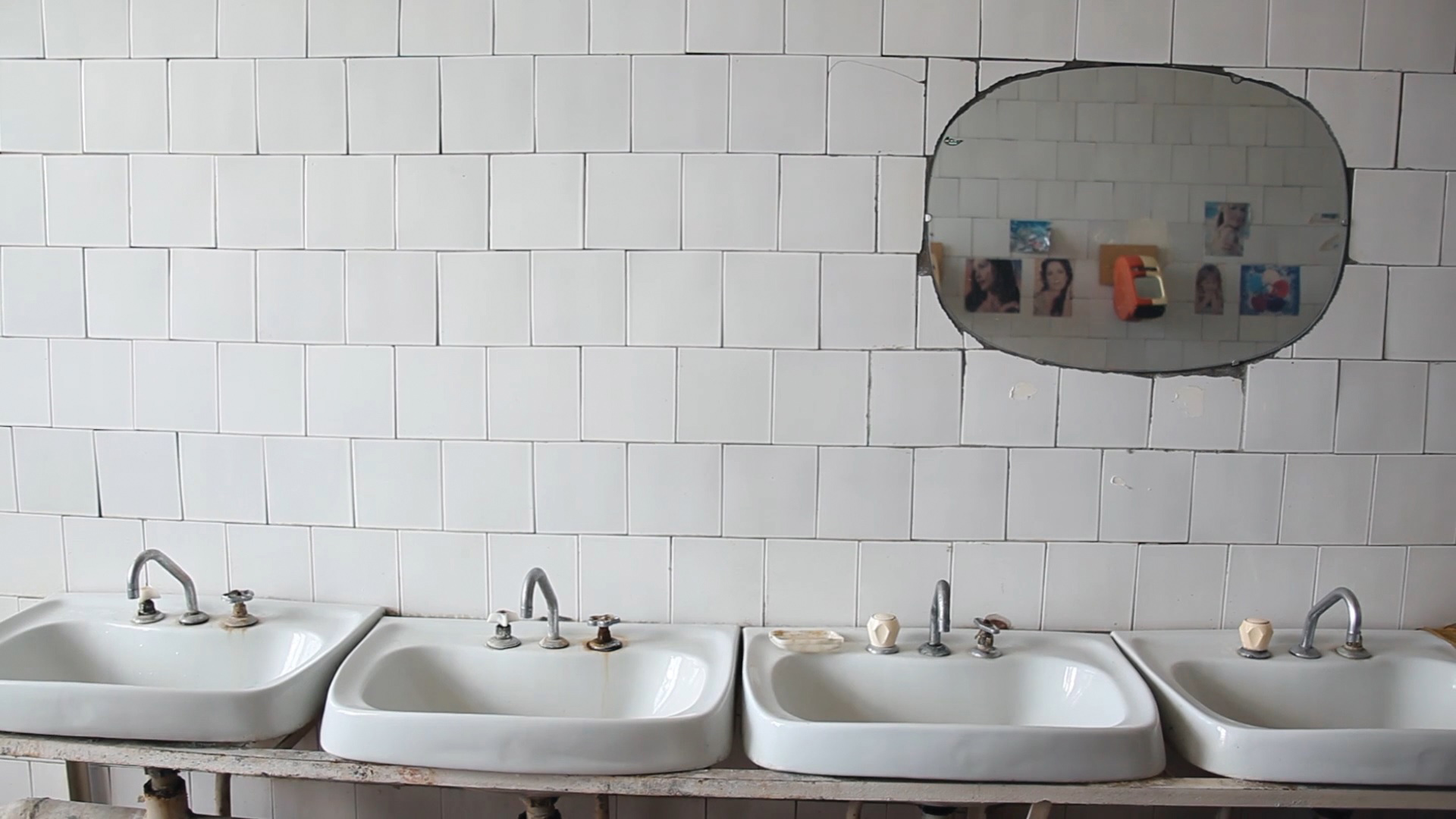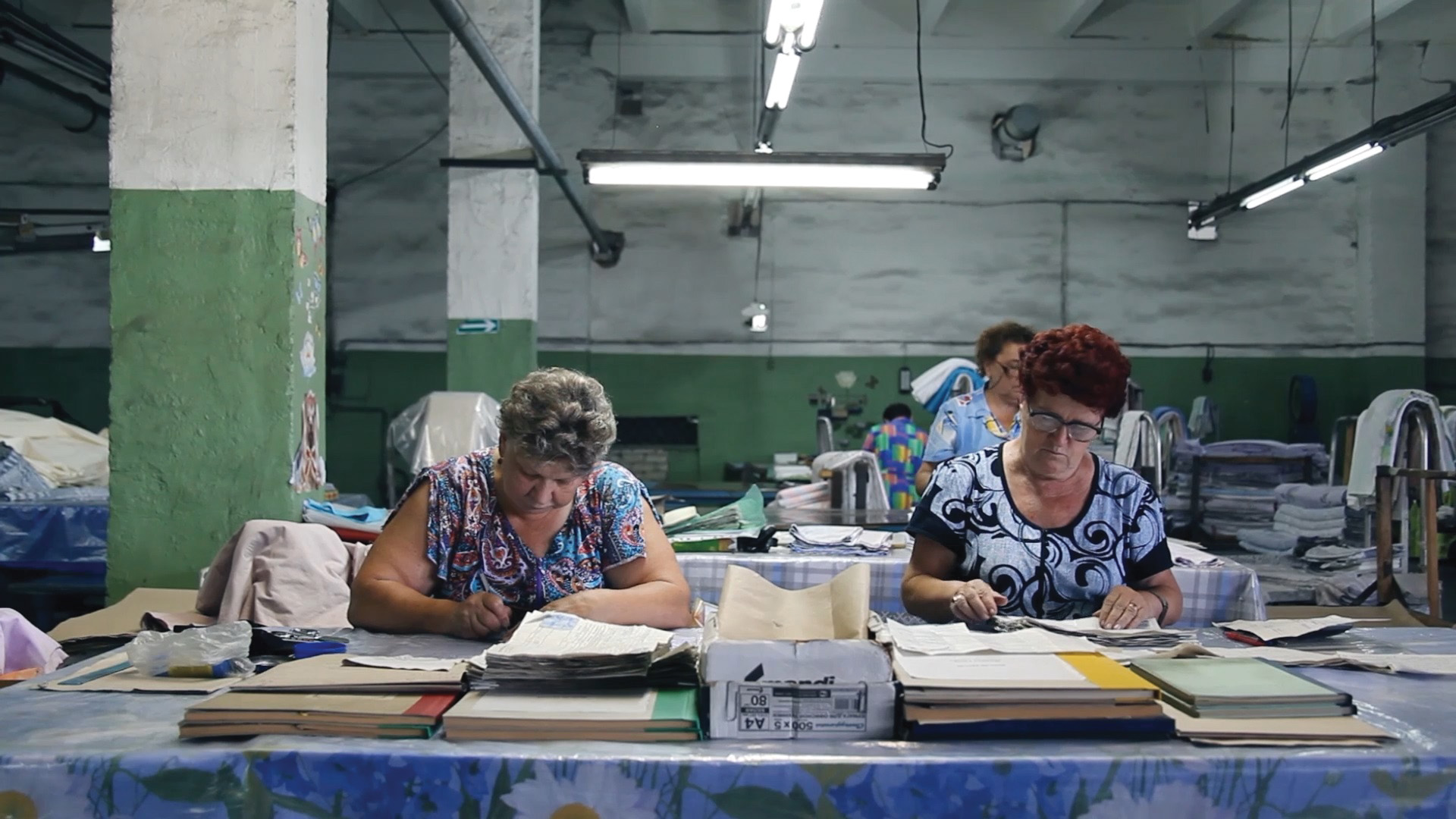Tea time with Fabrichnaya etnografiya [Ethnography of Factories]
Interview with Anastasiia Ksenofontova, director of Fabrichnaya etnografiya [Ethnography of Factories]
Fabrichnaya etnografiya shows the unseen and the unknown: the daily life of the workers of a factory in Russia. What is it that has drawn you to do a documentary on this subject?
It’s quite simple. The opportunity presented itself.
How did you decide which images to use to illustrate the subject?
I had four days available for the shoot. The first two days, I walked through the factory in search of my protagonist. I spoke with the workers; I sat in the same place for a half-hour observing, examining all the textiles and prints. And the morning of the third day, I came to realize that the hero was none other than the factory itself, its beauty. That’s when these settings, in all of their beauty, imposed themselves in the end for this film.
The workers appear at the end of the documentary, whereas the first minutes focus on the mechanical world of the factory, the machines, on a universe that seems deprived of humanity. Can you say a few words about this aspect of the film ?
It’s a strange symbiosis between man and machine. You could say that man’s mechanical work within the factory is an artificial ballet, with men coming and going from one point to another for reasons comprehensible only to themselves. Sometimes, you could get the feeling that the factory existed and functioned all on its own, between the grinding, murmurs, and disrepair, but no. Behind all of these machines are men who take care of them. They know these machines by heart, they repair the seemingly unrepairable. That’s why if I hadn’t shown the workers leaving the factory at the end of the work day, it wouldn’t have been accurate.
Is the relation between past and present important for you in the film?
For me, it is the timelessness that is important.
How do you hope audiences will react to the film?
I hope they aren’t going to see Russia as a third-world country (even though in our country there is no shortage of such things – factories, towns or semi-disused gardens). The film is not about working methods of the past. There is no message. It is a film about beauty.
What do you think the future holds for short films?
I’ve never really understood fictional short films. For documentary films, the short film is a great format. There are often stories that last between 10 and 30 minutes, and that from 40 minutes on would become too ponderous to watch. Especially for an uninformed spectator, for whom it is not easy to watch films where “nothing happens”. This is why the short format is particularly well suited to popularize documentaries to the general public.
If we were to go back into lockdown, what cultural delights would you recommend to alleviate our boredom?
Self-training (Is that a cultural delight? For me, yes, I work in the sphere of culture): online short films, articles, books.
Fabrichnaya etnografiya [Ethnography of Factories] is being shown in International Competition I8.










